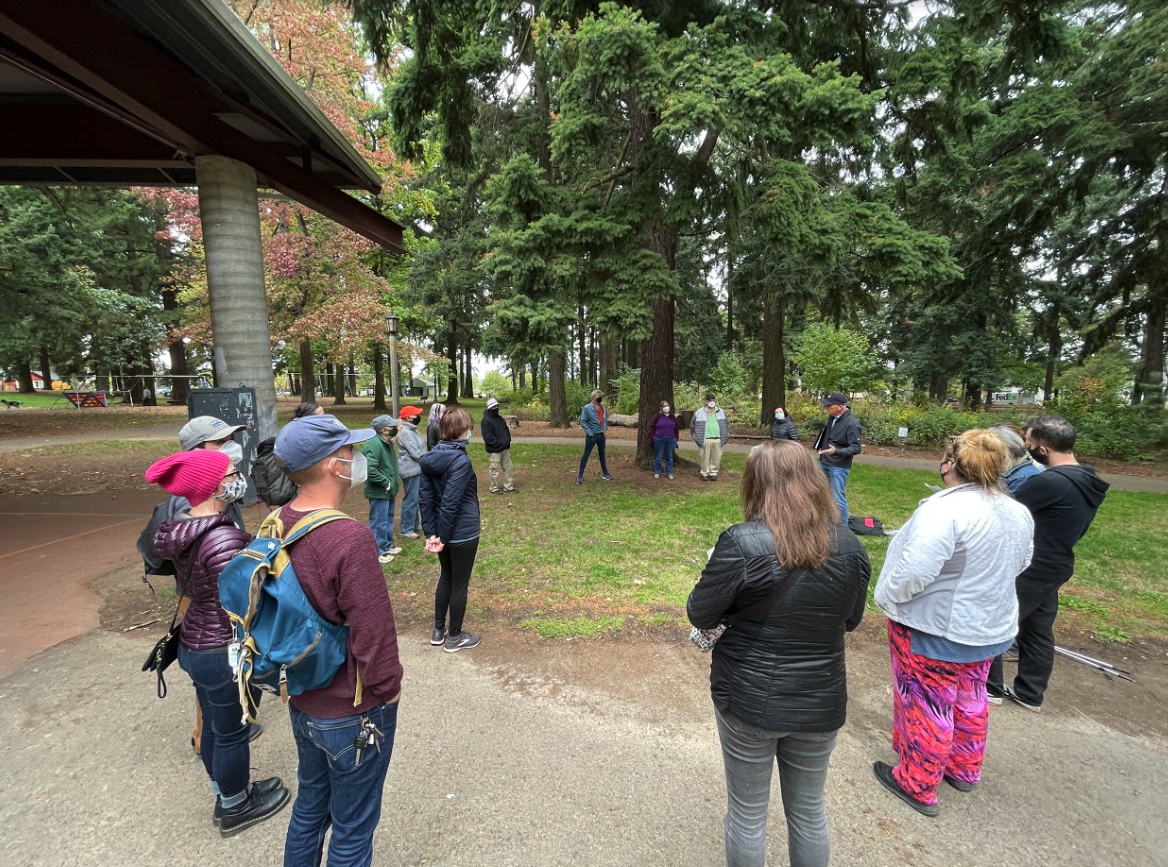
It's rewarding to have an impact.
About
Through the Vernon Neighborhood Association (VNA), neighbors old and new can work together to shape the future of our neighborhood – from Alberta Street to Alberta Park – by taking on projects, taking up issues, and taking action together.
The VNA strives to actively initiate, promote and implement programs that connect the diverse neighbors in this community. We work to build a safe, resilient neighborhood through resources (like No Cops PDX) that’s informed by its rich cultural history. Through listening and sharing we cultivate community engagement.
The VNA has an all-volunteer board, elected each October. Our board meets the 2nd Wednesday of most months. You can contact us at VNABoard@gmail.com if you are interested in speaking or suggesting a topic.
The summer of 2023 we conducted a survey of the community which you can see the results of here.
We are dedicated to ensuring a diverse board and workforce and will not discriminate against individuals or groups on the basis of race, religion, color, gender identity, sexual orientation, age, disability, citizenship, national origin, income or political affiliation. From providing a welcoming and healthy community environment to maintaining and expanding partnerships with organizations that also work with diverse groups, we are committed to diversity within the organization.
See our 2023 survey results
Meet the Board
-
Nikki Ricks
BOARD CHAIR
-
Brooks Barth
BOARD MEMBER - STREET TREES CO-CHAIR
-

Dustin Davis
BOARD MEMBER - STREET TREES CO-CHAIR
-

David Heller
BOARD MEMBER - SAFE STREETS CHAIR
-

Devlin Peck
BOARD MEMBER - BUSINESS RELATIONS CHAIR
-

Taylor Villucci
BOARD MEMBER - LITTER AND BEAUTIFICATION CHAIR
-

Allan Whiting
BOARD MEMBER - NECN LIAISON
At the heart of the Vernon Neighborhood Association lies a dedication to building a diverse and inclusive community. We want to openly acknowledge an important facet of our organization: the current lack of racial minorities among our seven board members, all of whom are currently white. This doesn't represent the racial diversity of our neighborhood, as highlighted by demographic insights from various sources:
The Vernon Street Trees Inventory Report delineates 62% white, 23% Black, 7% Hispanic/Latino, with smaller percentages representing other ethnic backgrounds.
Niche suggests 76% white, 8% Black, and 6% two or more races.
City Data estimates 73% white, 7% Black, 5% two or more races, 5% Hispanic, 4% Asian, and 3% American Indian.
To address the current disparity in our board's composition, we are actively working towards creating an inclusive space. Initiatives include hosting meetings at different venues, facilitating open dialogues, and actively seeking community participation. We invite individuals from all backgrounds to join us in shaping the future of the Vernon Neighborhood Association, ensuring that our leadership aligns with the diversity that defines our vibrant community. Together, we can build a more inclusive and equitable future for all.
History
Pre-1800s & colonization: Portland Metro area rests on traditional village sites of the Multnomah, Wasco, Cowlitz, Kathlamet, Clackamas, Bands of Chinook, Tualatin, Kalapuya, Molalla, and many other tribes who made their homes along the Columbia River. Indigenous people have created communities and summer encampments to harvest and enjoy the plentiful natural resources of the area for the last 11,000 years. (source)
1880s: Vernon begins as farmland.
1900-1930: Streets and houses shape the neighborhood. For more history of Vernon 1880-1940s visit alamedahistory.org
1948: Vanport flood displaces residents, shifting demographics.
1970s-1990s: Alberta area perceived as challenging.
1974: Formation of the Vernon Neighborhood Association (VNA).
1997: Last Thursday event marks a turnaround in Alberta's reputation.
2013: Gentrification alters perceptions of the neighborhood.
Late 2018/Early 2019: Discussions on fiscal sponsorship for VNA begin.
2020: VNA transitions to fiscal sponsorship under NECN.

